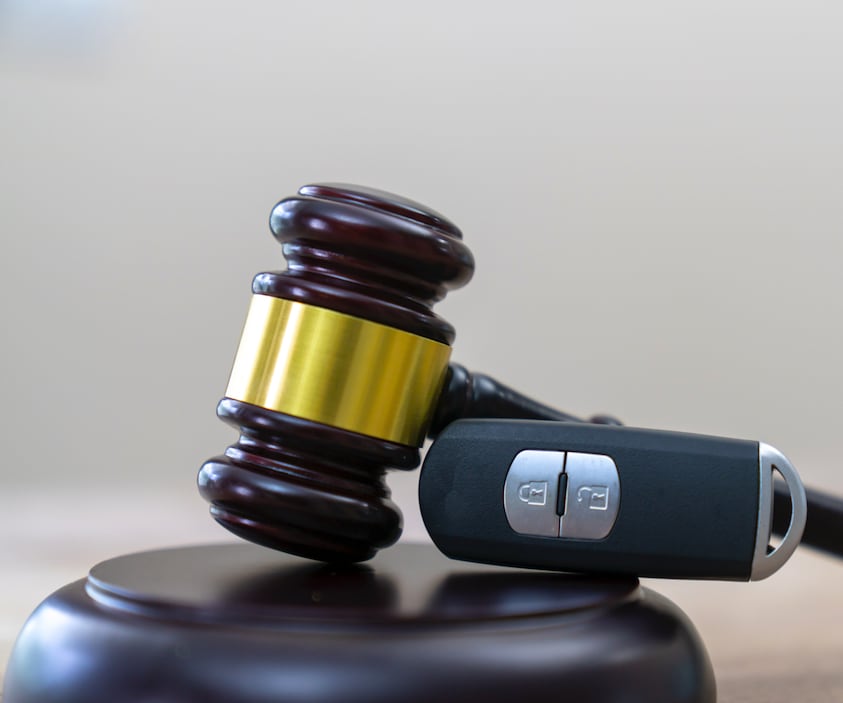If you drive a car, you have to have car insurance, it's that simple. But what kinds of coverage is there and what are you required to have? Many people try to save money by having the minimum amount of coverage that is offered, but that can become a problem if or when you are involved in a traffic accident, no matter whose fault it is. If you've never had car insurance before, then this article is for you. What follows is basic car insurance 101. Here's what you need to know including what kinds of coverage is available, what is required by law, as well as advice from industry professionals.
Car Insurance 101 - Coverage Basics
What is Auto Insurance?
Why do I need it? Auto insurance involves a contract between a car insurance company and you. The contract states that the insurance company agrees to pay for certain losses as defined by the policy, and you (the policyholder) agree to pay the insurance premium for coverage. You can make monthly payments, pay every six months, or annually to be covered. If you are in an auto accident, the insurance company pays for any damage to you, your vehicle, the other driver and that driver's vehicle, and any property you may have damaged, such as driving through someone's living room. Hey, it happens.

When you speak to a car insurance agent, they will tell you about liability, medical, and property coverage: Liability coverage pays for your legal responsibility to cover other people's bodily injury and property damage in the event of an accident. Medical coverage pays for the hospital costs of treating any injuries to yourself or others involved in an accident, from first responders to hospital stays, doctor's fees, and rehabilitation. Depending on the specifics of your medical coverage, it can also pay for lost wages after an accident and even funeral expenses.

What is required by law?
Currently, the only states that do not require you to have car insurance are New Hampshire and Virginia. Interestingly, there is no nationwide blanket for what must be covered in your car insurance plan; however, the majority of states require the minimum of carrying property damage liability insurance in order to drive legally on public roads. This pays for the other driver's medical expenses as well as any repairs to his or her vehicle in the event that you caused an accident. All states except Florida require that you have bodily injury liability coverage, and about half of the states require you to carry a type of uninsured or underinsured motorist insurance.
Coverage Types
Bodily Injury Liability coverage is the basic requirement by law to take care of any bodily injuries to someone other than yourself in the event of an automobile accident. This is important because, on average, there are over six million passenger car accidents on American roads each year. They are the leading cause of death in the U.S. and result in over 38,000 people losing their lives each year. Bodily Injury Liability covers you whether you are driving your own car or someone else's vehicle. Drivers who are involved in serious car accidents are often sued for large amounts of money and that's why many motorists purchase more than the state-required minimum amount of Liability insurance to protect their personal assets.
Medical Personal Injury Protection (PIP) insurance pays for medical treatment when you or your passengers are injured in a car accident. Depending on the specifics of your medical coverage, PIP can protect you and yours to cover medical expenses, hospital stays, lost wages while you are recovering, and even funeral expenses in the event of a death. There are eighteen states that require you to have PIP insurance, also known as "No-Fault" insurance. When involved in a car accident, your PIP insurance pays for the other driver's injuries. Kentucky, New Jersey, and Pennsylvania are "optional no-fault" states where drivers can choose whether they will be held to a no-fault system.
Property Damage Liability pays for any damage you cause to someone else's property when an auto accident occurs. This not only pays for any damage done to the other person's vehicle, but also pays for the repair of anything you hit with your car, from fences and buildings to city lamp posts and stop signs.
Collision Coverage pays for any damage done to your car in an accident, regardless of whose fault it is. This damage can be the result of an impact with another vehicle but also includes running into trees or other objects, flipping the car over, and even covers damage caused by those big, mean potholes you try to avoid.
This coverage comes with a deductible amount that you must cover before the insurance kicks in. The deductible amount can be anywhere from $250 to $1,000 that you agree to pay and the higher the deductible amount, the lower your premium for this coverage will be. Collision insurance will pay to repair your car once you've met the deductible amount no matter who was at fault in the accident. If you are not at fault in the accident, your insurance company will try to recover its costs including your deductible amount from the other driver's insurance company.
This coverage comes with a deductible amount that you must cover before the insurance kicks in. The deductible amount can be anywhere from $250 to $1,000 that you agree to pay and the higher the deductible amount, the lower your premium for this coverage will be. Collision insurance will pay to repair your car once you've met the deductible amount no matter who was at fault in the accident. If you are not at fault in the accident, your insurance company will try to recover its costs including your deductible amount from the other driver's insurance company.
Comprehensive Coverage takes care of reimbursing you for the loss of your car due to auto theft. It also covers loss or damage to your vehicle caused by fire, hurricanes, tornadoes, hail, flood, or foul play. It includes damage to your car caused by hitting a deer or collision with a large bird and includes repairing damage due to vandalism or riots. It will even repair your car in acts of war when your auto is blown up by machine gun fire or a missile. Hey, it happens.
This kind of coverage also comes with a deductive amount, and you can opt for a higher deductible to lower your premium. Comprehensive coverage usually included repairs to or replacement of your windshield which can be cracked by road debris. In fact, nearly 14 million windshields are relaced each year and most car insurance companies will waive your Comprehensive deductible for windshield repair. Some insurance carriers even offer separate Auto Glass Insurance which doesn't carry a deductible.
Note that some states do not require you to have Collision or Comprehensive insurance but if you have a car loan, your borrower may insist you include this coverage until your car is paid off.
This kind of coverage also comes with a deductive amount, and you can opt for a higher deductible to lower your premium. Comprehensive coverage usually included repairs to or replacement of your windshield which can be cracked by road debris. In fact, nearly 14 million windshields are relaced each year and most car insurance companies will waive your Comprehensive deductible for windshield repair. Some insurance carriers even offer separate Auto Glass Insurance which doesn't carry a deductible.
Note that some states do not require you to have Collision or Comprehensive insurance but if you have a car loan, your borrower may insist you include this coverage until your car is paid off.
Uninsured Motorist, also known as Underinsured coverage, will reimburse you, your family, or a designated driver, if any of you are involved in a car accident with someone who has no car insurance, or is underinsured. This also covers you in the event of an accident caused by a hit-and-run driver. The underinsured coverage is in effect when the driver who is at fault in an accident has insufficient car insurance to pay for your auto repairs or physical injuries. This also covers you if you are struck by a car while crossing the street as a pedestrian.
Additional Coverage
Besides what is considered basic car insurance, many carriers offer other optional protection that may interest you. These include, but are not limited to, Rental Reimbursement insurance that covers the costs of rental cars in the event your car is stolen or damaged and being repaired. Roadside Assistance plans similar to those offered by AAA pays for towing your vehicle, changing a flat tire, or starting your car when the battery is dead. Note that auto insurance roadside assistance plans can count as an insurance claim. Many automakers now include roadside assistance as part of their warranty packages.

If your vehicle is declared a total loss due to an accident or disaster, Gap Insurance will cover the difference between your car's cash value and how much you still owe on the car. Gap Insurance is mandatory if you are leasing a car and according to the Insurance Information Institute (III), you should consider Gap Insurance if you made less than a 20 percent down payment on your vehicle or are financing the car for 60 months or longer. The III says that "Gap Insurance covers the short fall, so you are not on the hook if the car is totaled."
If you were caught driving while uninsured or have had a Driving Under the Influence (DUI) conviction, you will be required to obtain an SR-22 or FR-44 insurance certificate from a participating insurance carrier. This proves to your state that you are carrying the required insurance to operate a motor vehicle.
Protect Yourself and your Family
No one expects to become involved in a car accident but over 14,000 crashes occur in America every day. That's an accident every six minutes! Don't put yourself or those you love in a position of paying high vehicle repair costs or medical expenses by avoiding having proper car insurance. You could lose your savings, even your home. Having car insurance is not only mandatory in most states, it protects you and your net worth, giving you that most rare of gifts… peace of mind.


